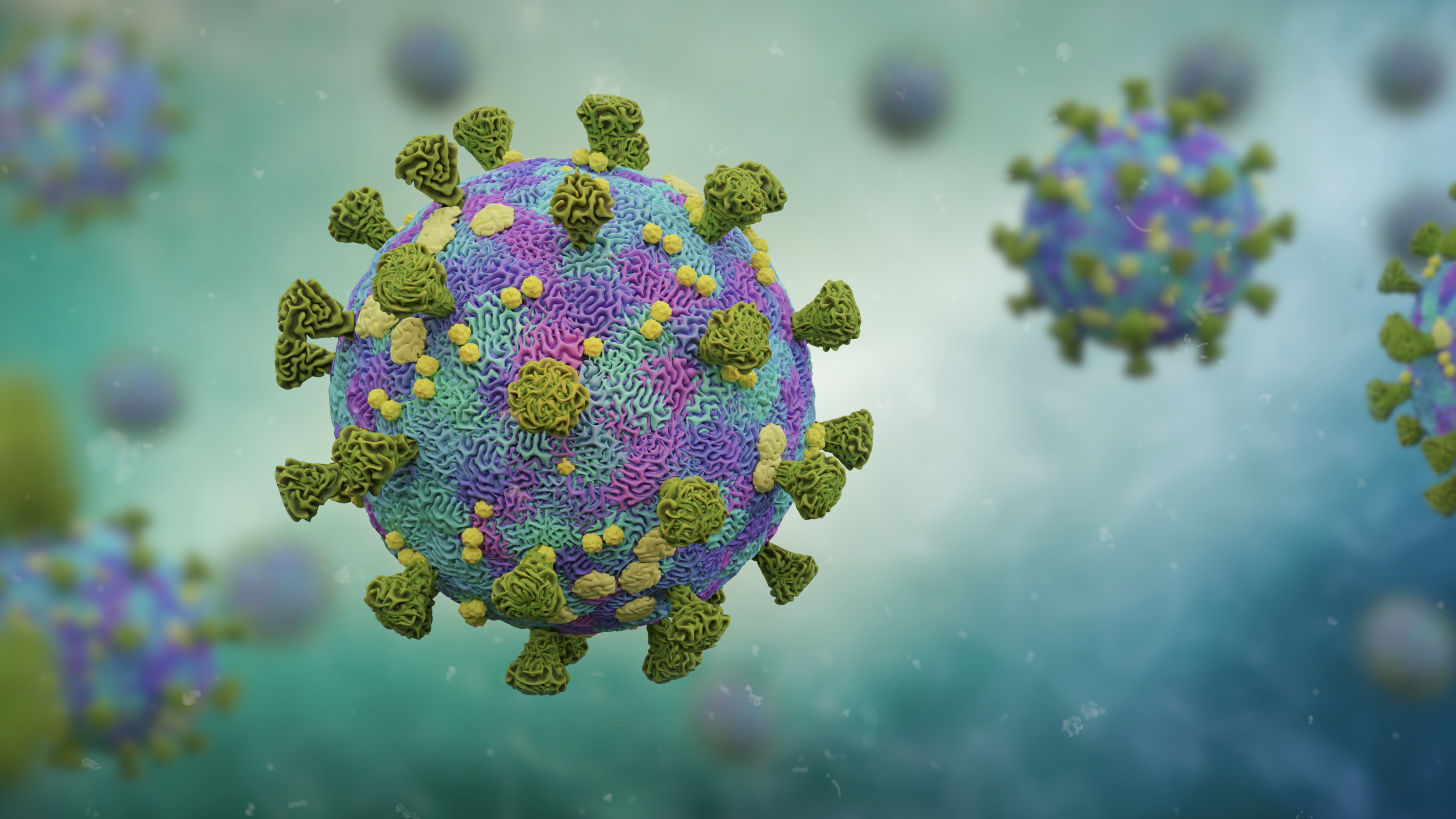
Craveology Cafe and the North Star Science Store are temporarily closed for renovation.

By Julie Medina, Fleet Science Center School Programs Manager
A-choo, sniff-sniff, cough-cough! Many diseases, including the common cold, are caused by viruses—and these tiny beings that are not even considered alive! Viruses are microscopic parasites, generally much smaller than bacteria. They lack the capacity to thrive and reproduce outside of a host body. The term Coronavirus is a general term for a large family of viruses that can cause mild to moderate upper-respiratory tract illnesses, like the common cold. They are named after the Latin word corona meaning crown, for their characteristic projections on the surface.
WHAT’S IN A VIRUS?
The outer layer is a protective shell called a capsid. Some viruses also have a viral envelope, which adds protection and helps virions attach to host cells. The envelope can act as a smokescreen or cloak of sorts, helping virions avoid detection by a host’s immune system. Most viruses have just a few genes, which contain the instructions for making new viruses in either DNA or its single-stranded relative, RNA. Though they carry this genetic material, viruses lack the cellular machinery to replicate themselves and that, unfortunately, is where our cells come in. The virus will use the protein projections on its surface to interact with our cells, which will then replicate the genetic material of the virus creating more copies to spread throughout the body, causing us to feel ill.
HOW DO WE PROTECT OURSELVES FROM VIRUSES?
You might have heard a lot, especially recently, about washing your hands or using hand sanitizer to help protect yourself from viruses and other germs. But, how do they work? Chemicals in the soap will work to break down the lipids (fat) contained within the membranes of the virus, causing it to fall apart and become inactive. Similarly, the alcohol in hand sanitizer will do the same, reducing the threat of the virus.
Now that we know a bit more about what can cause illnesses, we also know a bit more about how to prevent them! Until next time, stay curious as always, but let’s also continue to stay safe, wash our hands, and take care of each other as we are all in this together!